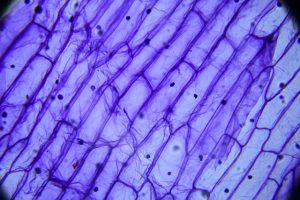Integrating Mind, Nutrition, and Wellness for Effective Addiction Recovery
Holistic addiction recovery encompasses a comprehensive approach that addresses the multifaceted nature of substance use disorders by considering their effects on physical health, mental well-being, social relationships, and spiritual aspects. This metho…….

Holistic addiction recovery encompasses a comprehensive approach that addresses the multifaceted nature of substance use disorders by considering their effects on physical health, mental well-being, social relationships, and spiritual aspects. This method transcends traditional treatment's abstinence focus to explore and manage the underlying causes and conditions that contribute to addiction. It offers various therapeutic methods, including counseling, meditation, exercise, nutritional guidance, and alternative treatments like acupuncture or yoga, with the aim of promoting overall health and well-being. Integrating mental health care is a key component, as it helps address psychological factors that can influence addictive behaviors. Nutrition plays a vital role in this holistic framework by aiding physiological rebalance through essential nutrients that support brain chemistry and mood regulation. A balanced diet rich in omega-3 fatty acids, amino acids, B vitamins, Vitamin D, magnesium, and zinc can help manage withdrawal symptoms and cravings, while maintaining stable blood sugar levels through regular meals helps prevent relapse. By combining nutritional interventions with other therapeutic practices, holistic addiction recovery provides a tailored, supportive framework for meaningful change and sustained sobriety. This approach not only heals the immediate effects of substance abuse but also equips individuals with long-term tools for maintaining recovery and promoting a fulfilling life.
Holistic approaches to addiction recovery recognize that healing is not solely about abstaining from substances; it encompasses a comprehensive, integrative strategy that addresses physical, psychological, and spiritual well-being. This article explores the multifaceted nature of addiction recovery, emphasizing the importance of mental health, nutritional support, physical activity, and integrative therapies such as acupuncture, yoga, and meditation. It also delves into emotional well-being, trauma-informed care, community support, spirituality, mindfulness, alternative medicine, personalized recovery plans, aftercare, and the role of nature in the healing process. Through case studies and scientific insights, this article demonstrates how a holistic approach can lead to sustainable recovery from addiction, highlighting its effectiveness and the empowerment it brings to individuals on their journey to wellness.
- Embracing a Holistic Perspective on Addiction Recovery
- The Role of Mental Health in Substance Abuse Treatment
- Nutritional Strategies for Supporting Recovery from Addiction
Embracing a Holistic Perspective on Addiction Recovery
Holistic approaches to addiction recovery recognize that substance use disorders are complex and multifaceted, often intertwined with a person’s physical health, mental well-being, social environment, and spiritual outlook. This comprehensive view moves beyond conventional treatment methods that traditionally focus solely on abstinence, aiming instead to address the underlying causes and contributing factors of addiction. By adopting a holistic perspective, individuals are more likely to find sustainable recovery, as this approach not only treats the symptoms but also heals the individual at various levels. It encompasses a range of therapeutic practices including counseling, meditation, physical exercise, nutritional therapy, and complementary therapies like acupuncture or yoga. These methods work in concert to promote overall health, reduce stress, improve coping strategies, and foster a supportive community that encourages long-term addiction recovery. In essence, holistic approaches create a foundation for healing that respects the unique needs of each person, fostering an environment where true transformation can take place.
The Role of Mental Health in Substance Abuse Treatment
Holistic approaches to addiction recovery recognize the intricate interplay between substance abuse and mental health. Effective treatment strategies for addiction must address the underlying psychological issues that often contribute to or exacerbate substance use disorders. Mental health considerations are integral to a comprehensive recovery plan, as they can significantly influence an individual’s propensity to engage in addictive behaviors. Substance abuse frequently co-occurs with mental health conditions such as depression, anxiety, and trauma-related disorders. By integrating mental health care into addiction treatment, individuals receive a more personalized and effective recovery experience. This approach not only aims to abstain from substance use but also promotes psychological well-being, emotional regulation, and the development of coping mechanisms that are sustainable in the long term. In doing so, holistic addiction recovery programs support individuals in healing from both the mental health challenges and the substance abuse issues they face, thereby enhancing their chances of maintaining a life in recovery.
Nutritional Strategies for Supporting Recovery from Addiction
Nutritional interventions play a pivotal role in supporting addiction recovery by restoring physiological balance and promoting overall well-being. A well-rounded diet can help stabilize brain chemistry, which is often disrupted during substance abuse. Essential nutrients, particularly omega-3 fatty acids, amino acids, vitamins like B vitamins and Vitamin D, and minerals such as magnesium and zinc, are crucial for neurotransmitter function and mood regulation. Incorporating a variety of whole foods, including lean proteins, fruits, vegetables, nuts, and seeds, can provide the building blocks necessary for brain health and can aid in reducing cravings and managing withdrawal symptoms. Additionally, maintaining stable blood sugar levels through regular, balanced meals can help prevent relapse triggers associated with intense cravings or mood swings. By focusing on nutrient-dense foods and eliminating or limiting processed and high-sugar foods, individuals in recovery can support their journey towards health and sobriety. This holistic approach to nutrition not only complements other therapeutic strategies but also empowers individuals with the knowledge and tools to take an active role in their recovery process.
holistic recovery, mental health integration, nutritional support in addiction recovery.
In conclusion, the path to addiction recovery is multifaceted and deeply personal. Embracing a holistic perspective on recovery acknowledges the intricate interplay between physical well-being, psychological health, and spiritual fulfillment. Integrating mental health considerations within substance abuse treatment plans is not just beneficial but vital for sustained recovery. Furthermore, nutritional strategies tailored to individual needs play a pivotal role in nurturing the body and mind, thereby complementing other therapeutic approaches. A robust addiction recovery journey is one that honors the whole person, addressing the full spectrum of needs to pave the way toward healing and long-term abstinence from substance use.









